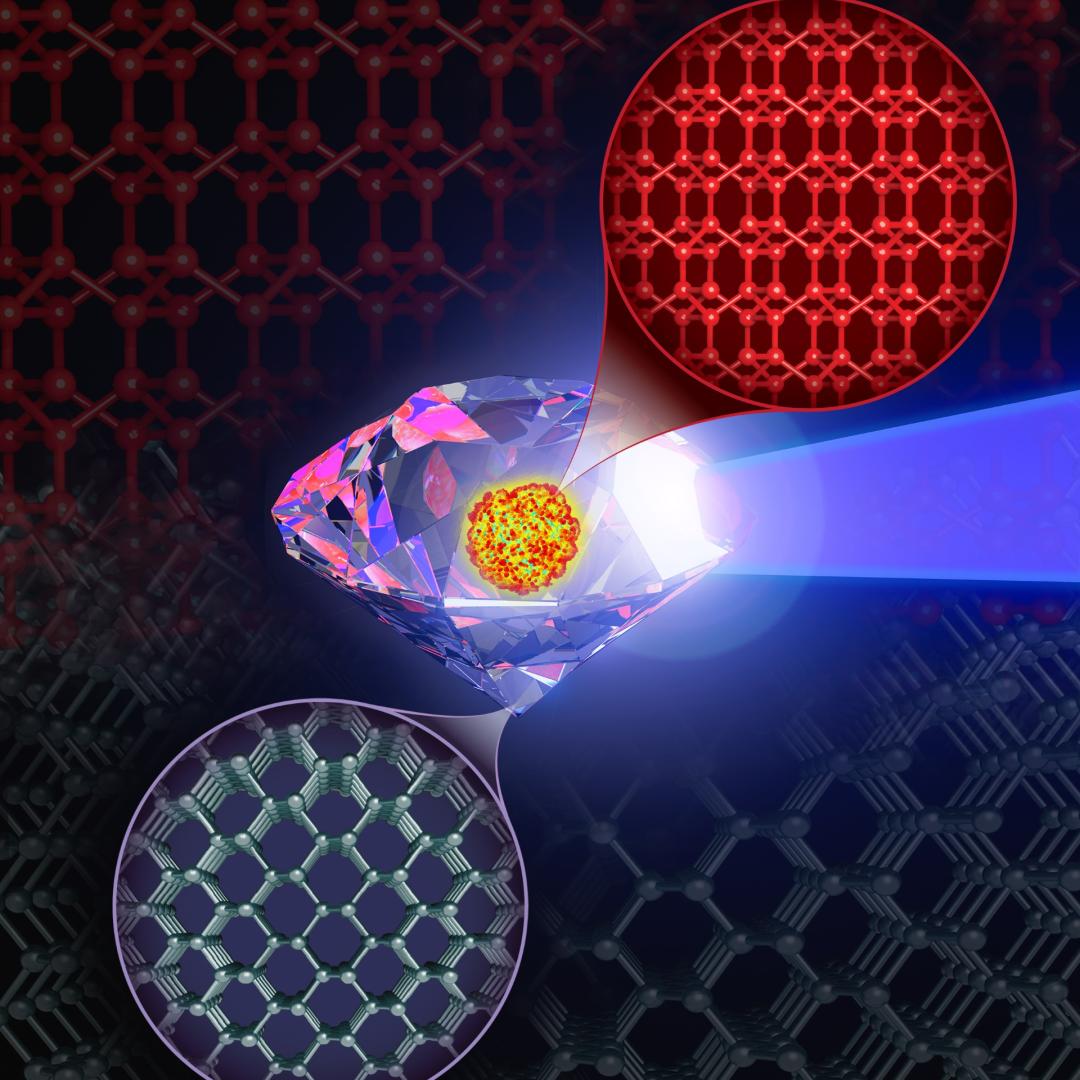
Filter News
Area of Research
- Advanced Manufacturing (3)
- Biology and Environment (30)
- Clean Energy (83)
- Electricity and Smart Grid (1)
- Fusion and Fission (11)
- Fusion Energy (2)
- Isotope Development and Production (1)
- Isotopes (3)
- Materials (30)
- Materials for Computing (8)
- National Security (9)
- Neutron Science (6)
- Nuclear Science and Technology (11)
- Quantum information Science (1)
- Supercomputing (42)
News Type
News Topics
- (-) Advanced Reactors (18)
- (-) Buildings (31)
- (-) Frontier (40)
- (-) Grid (40)
- (-) Polymers (20)
- (-) Space Exploration (15)
- (-) Sustainable Energy (77)
- (-) Transformational Challenge Reactor (7)
- 3-D Printing/Advanced Manufacturing (85)
- Artificial Intelligence (78)
- Big Data (34)
- Bioenergy (74)
- Biology (81)
- Biomedical (46)
- Biotechnology (18)
- Chemical Sciences (53)
- Clean Water (16)
- Climate Change (72)
- Composites (17)
- Computer Science (144)
- Coronavirus (34)
- Critical Materials (15)
- Cybersecurity (31)
- Decarbonization (64)
- Education (4)
- Element Discovery (1)
- Emergency (2)
- Energy Storage (70)
- Environment (139)
- Exascale Computing (36)
- Fossil Energy (5)
- Fusion (44)
- High-Performance Computing (73)
- Hydropower (5)
- Isotopes (45)
- ITER (4)
- Machine Learning (35)
- Materials (100)
- Materials Science (95)
- Mathematics (7)
- Mercury (9)
- Microelectronics (3)
- Microscopy (36)
- Molten Salt (3)
- Nanotechnology (42)
- National Security (57)
- Net Zero (11)
- Neutron Science (96)
- Nuclear Energy (81)
- Partnerships (45)
- Physics (53)
- Quantum Computing (30)
- Quantum Science (56)
- Renewable Energy (2)
- Security (22)
- Simulation (40)
- Software (1)
- Statistics (2)
- Summit (52)
- Transportation (52)
Media Contacts
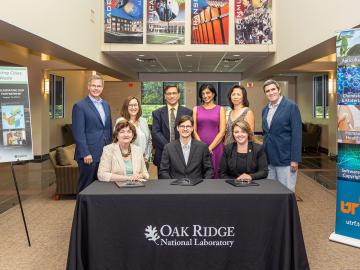
Electro-Active Technologies, Inc., of Knoxville, Tenn., has exclusively licensed two biorefinery technologies invented and patented by the startup’s co-founders while working at the Department of Energy’s Oak Ridge National Laboratory. The technologies work as a system that converts organic waste into renewable hydrogen gas for use as a biofuel.
A team of scientists led by Oak Ridge National Laboratory have discovered the specific gene that controls an important symbiotic relationship between plants and soil fungi, and successfully facilitated the symbiosis in a plant that

OAK RIDGE, Tenn., May 7, 2019—The U.S. Department of Energy today announced a contract with Cray Inc. to build the Frontier supercomputer at Oak Ridge National Laboratory, which is anticipated to debut in 2021 as the world’s most powerful computer with a performance of greater than 1.5 exaflops.
OAK RIDGE, Tenn., Feb. 12, 2019—A team of researchers from the Department of Energy’s Oak Ridge and Los Alamos National Laboratories has partnered with EPB, a Chattanooga utility and telecommunications company, to demonstrate the effectiveness of metro-scale quantum key distribution (QKD).
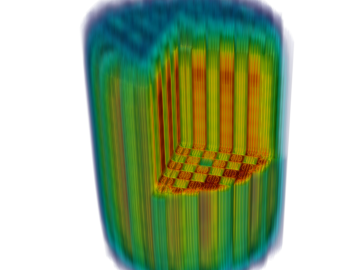
The Department of Energy’s Oak Ridge National Laboratory is collaborating with industry on six new projects focused on advancing commercial nuclear energy technologies that offer potential improvements to current nuclear reactors and move new reactor designs closer to deployment.
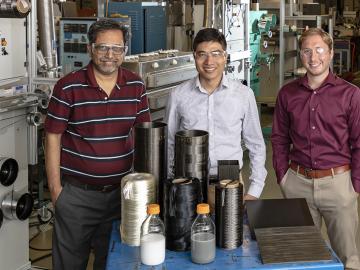
Carbon fiber composites—lightweight and strong—are great structural materials for automobiles, aircraft and other transportation vehicles. They consist of a polymer matrix, such as epoxy, into which reinforcing carbon fibers have been embedded. Because of differences in the mecha...
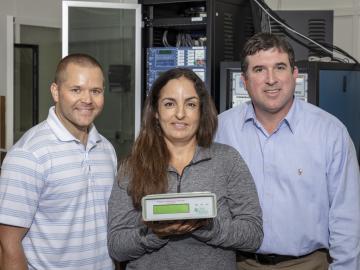
As Puerto Rico works to restore and modernize its power grid after last year’s devastating hurricane season, researchers at Oak Ridge National Laboratory have stepped up to provide unique analysis, sensing and modeling tools to better inform decisions.
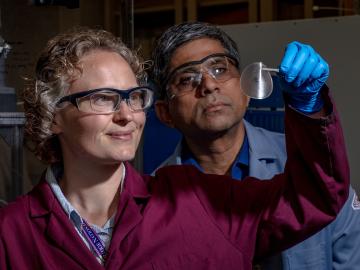
Oak Ridge National Laboratory scientists have developed a crucial component for a new kind of low-cost stationary battery system utilizing common materials and designed for grid-scale electricity storage. Large, economical electricity storage systems can benefit the nation’s grid ...

Last November a team of students and educators from Robertsville Middle School in Oak Ridge and scientists from Oak Ridge National Laboratory submitted a proposal to NASA for their Cube Satellite Launch Initiative in hopes of sending a student-designed nanosatellite named RamSat into...
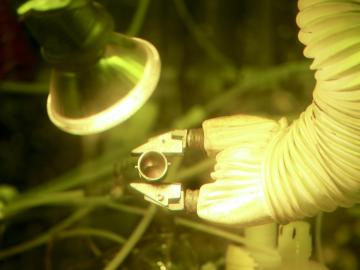
With the production of 50 grams of plutonium-238, researchers at the Department of Energy’s Oak Ridge National Laboratory have restored a U.S. capability dormant for nearly 30 years and set the course to provide power for NASA and other missions.


